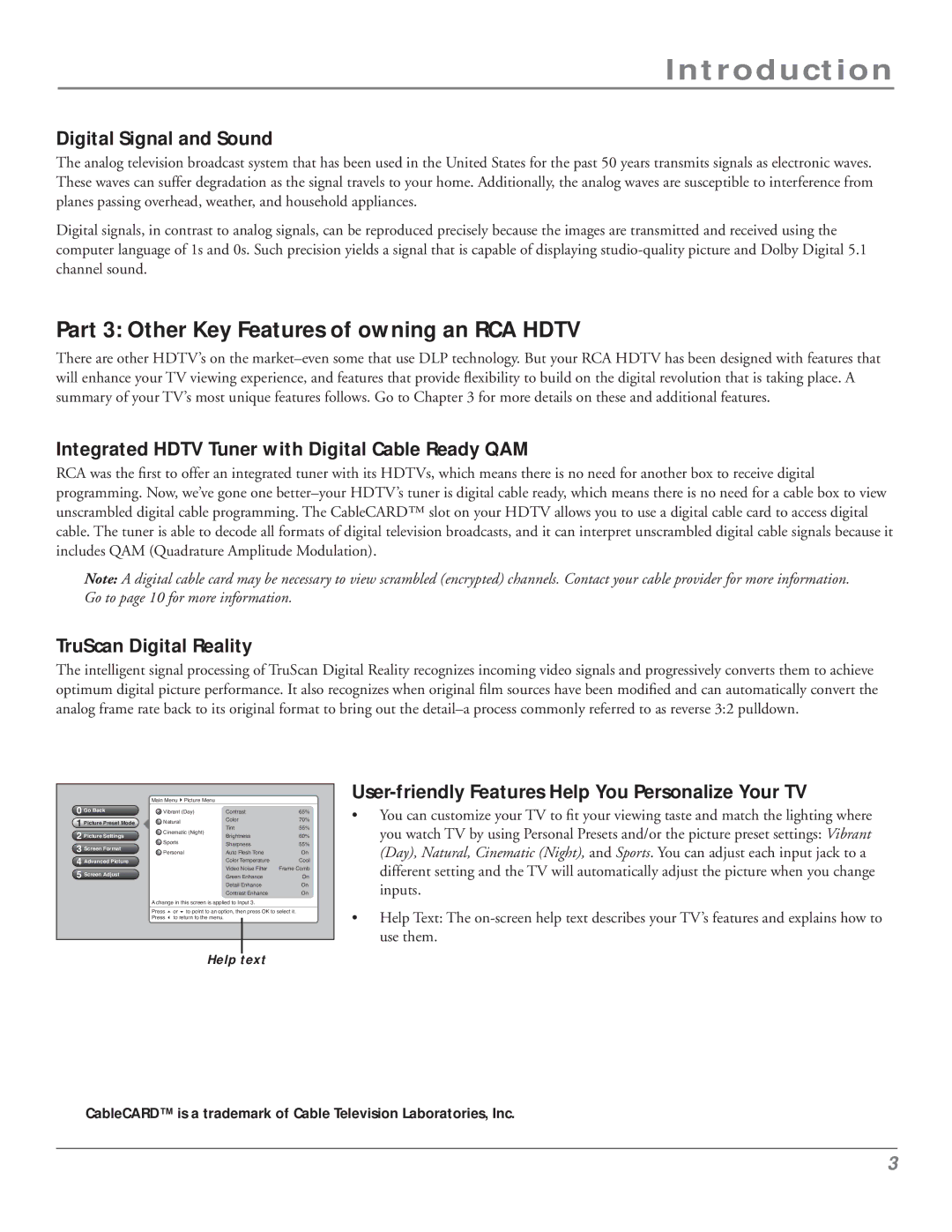
Introduction
Digital Signal and Sound
The analog television broadcast system that has been used in the United States for the past 50 years transmits signals as electronic waves. These waves can suffer degradation as the signal travels to your home. Additionally, the analog waves are susceptible to interference from planes passing overhead, weather, and household appliances.
Digital signals, in contrast to analog signals, can be reproduced precisely because the images are transmitted and received using the computer language of 1s and 0s. Such precision yields a signal that is capable of displaying
Part 3: Other Key Features of owning an RCA HDTV
There are other HDTV’s on the
Integrated HDTV Tuner with Digital Cable Ready QAM
RCA was the first to offer an integrated tuner with its HDTVs, which means there is no need for another box to receive digital programming. Now, we’ve gone one
Note: A digital cable card may be necessary to view scrambled (encrypted) channels. Contact your cable provider for more information. Go to page 10 for more information.
TruScan Digital Reality
The intelligent signal processing of TruScan Digital Reality recognizes incoming video signals and progressively converts them to achieve optimum digital picture performance. It also recognizes when original film sources have been modified and can automatically convert the analog frame rate back to its original format to bring out the
0Go Back
1Picture Preset Mode
2Picture Settings
3Screen Format
4Advanced Picture
5Screen Adjust
Main Menu4Picture Menu
Vibrant (Day) | Contrast | 65% | |
Natural | Color | 70% | |
Tint | 55% | ||
Cinematic (Night) | |||
Brightness | 60% | ||
| |||
Sports | Sharpness | 55% | |
| |||
Personal | Auto Flesh Tone | On | |
| Color Temperature | Cool | |
| Video Noise Filter | Frame Comb | |
| Green Enhance | On | |
| Detail Enhance | On | |
| Contrast Enhance | On |
A change in this screen is applied to Input 3.
Press 5 or 6 to point to an option, then press OK to select it. Press 3 to return to the menu.
User-friendly Features Help You Personalize Your TV
•You can customize your TV to fit your viewing taste and match the lighting where you watch TV by using Personal Presets and/or the picture preset settings: Vibrant (Day), Natural, Cinematic (Night), and Sports. You can adjust each input jack to a different setting and the TV will automatically adjust the picture when you change inputs.
•Help Text: The
Help text
CableCARD™ is a trademark of Cable Television Laboratories, Inc.
3
